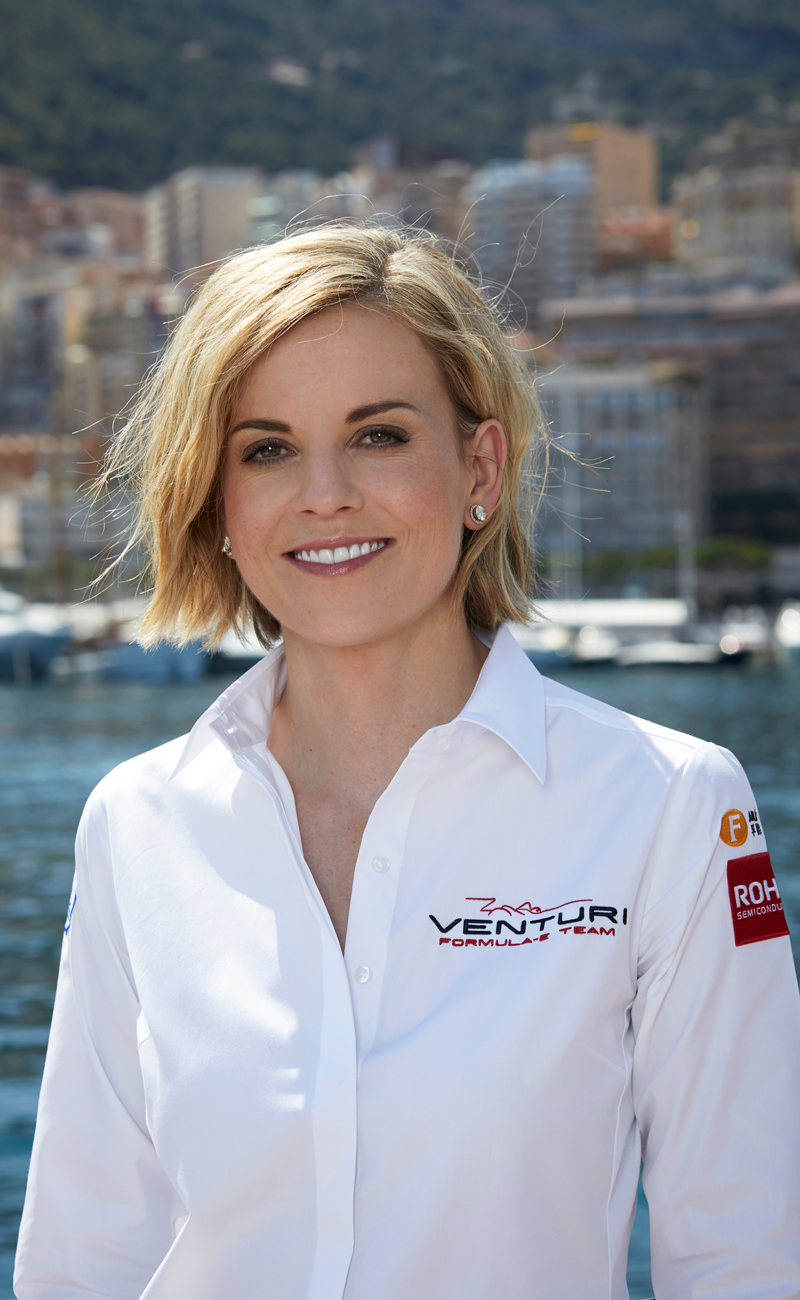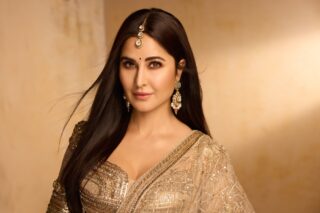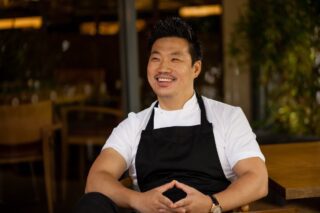This website uses cookies so that we can provide you with the best user experience possible. Cookie information is stored in your browser and performs functions such as recognising you when you return to our website and helping our team to understand which sections of the website you find most interesting and useful.
Formula E’s first female team principal Susie Wolff on smashing the glass ceiling of motorsports
By Rachel Ingram | 4 September 2018 | Cars & Yachts
Tempus meets Formula E’s first female team principal Susie Wolff on competing against her husband and smashing the glass ceiling of motorsports
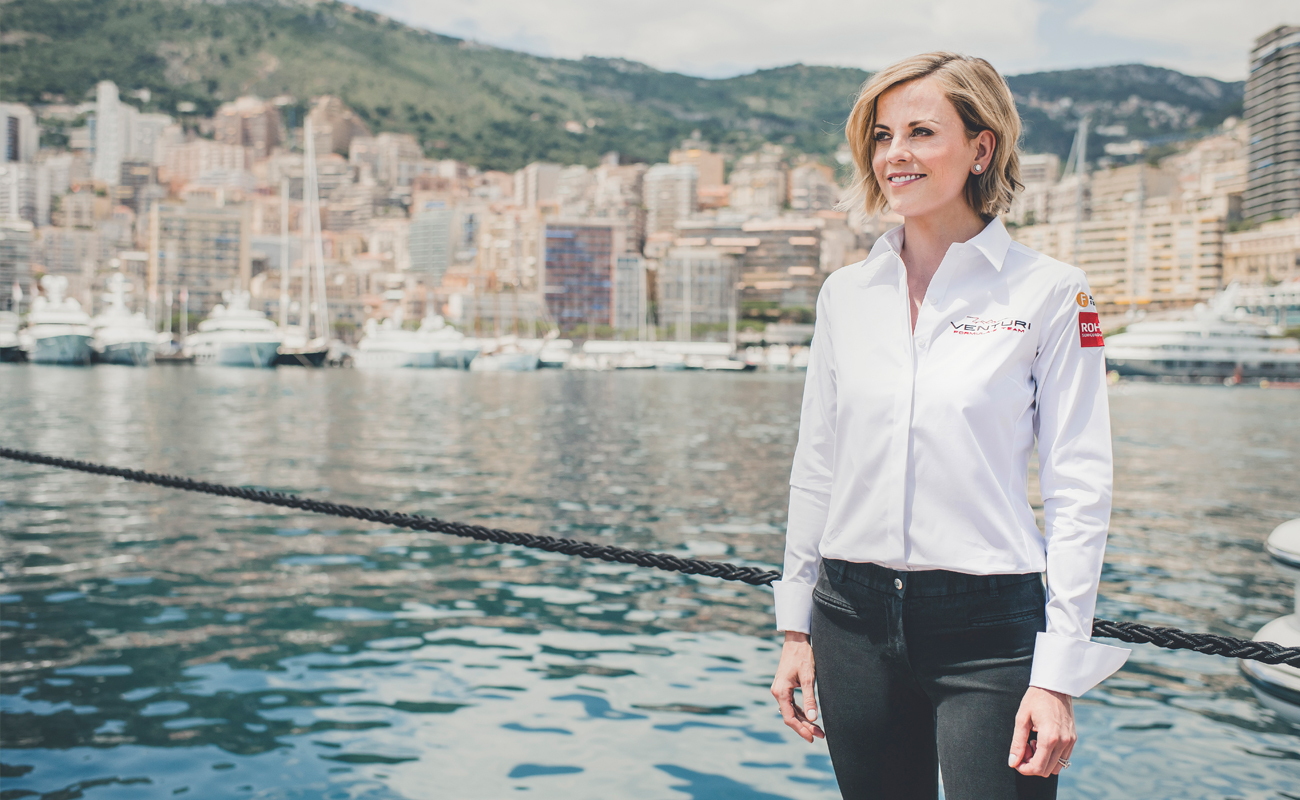
When Susie Wolff sped onto the Formula 1 track in 2014, she was the first female to do so in 22 years – no woman had attempted the feat after Giovanna Amati crashed out of the Grand Prix qualifiers in 1992. In 2015, a determined Wolff rose to take on the challenge as a test driver for Williams, her example opening up doors for the likes of Simona de Silvestro, Carmen Jordá and Tatiana Calderón who have since followed in her tracks as test drivers for various F1 teams. And while it seems women are slowly starting to edge closer to the starting grid, off the track and in the garages they’re still few and far between.
But this is all about to change as Wolff steps back into the limelight, this time as the new team principal (the top dog in charge) of the Venturi Formula E Team. The Briton continues the legacy of Monisha Kaltenborn who, when she was appointed team principal of the Sauber Formula 1 team in 2012, became the first woman in motorsport history to hold this prestigious position. While Kaltenborn has now retired her role, Wolff will carry her baton as she takes on her new challenge as Formula E’s first ever female team principal.
Wolff will work closely with Gildo Pastor, CEO of Venturi Automobiles and the Venturi Formula E Team – a man famed for this eccentric idealism and revolutionary approach to business – at the Monaco headquarters to lead the team through season five of the electric racing championship. The next edition is gearing up to be particularly exciting as all manufacture teams – including newcomers HWA and BMW – will use the speedy new Gen2 Formula E cars – these vehicles will overtake their predecessors by around 75km/h. Tempus joined Wolff at the season finale of the ABB FIA Formula E Championship in New York to find out what sparked her interest in electric racing and what her new role means for the future of women in motorsports.
Tempus: Welcome to Formula E. How did your partnership with Venturi come about?
Susie Wolff: When I decided to stop racing at the end of 2015, it was a very easy decision because I’d come to the end of the road and I always knew I wanted to walk away on my terms. The time had come to move onto new ventures. I took time out and I had a son, which was the best thing I’ve ever done, but I realised quite quickly that I’m somebody who needs a challenge and a goal – I’m a better version of myself when I have that. When you’re a sportsperson and you stop doing a sport you’ve done for so long, it’s very exciting on one side because you’re a blank sheet of paper, but it’s also sometimes quite frightening because you don’t know which path to take. Motorsport is my passion, it’s where my network is, so I wanted to go into the management side of things. I was just waiting for the right opportunity to come up. I met Gildo [Pastor] many years ago when I nearly drove for his team, so it was a perfect fit for me.
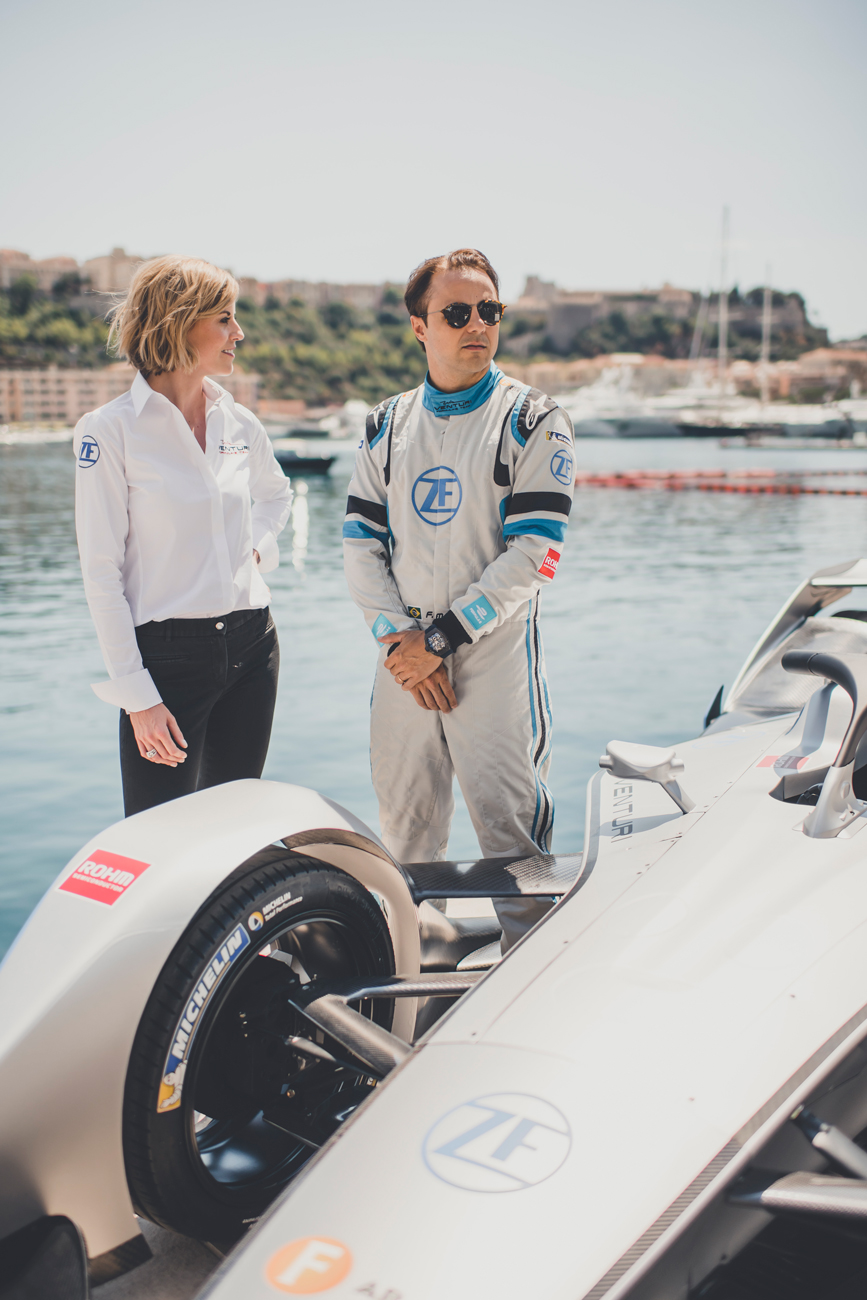
Why was electric racing so appealing to you after a career racing combustion cars?
How quickly the automotive industry is changing now is incredible. E-mobility is where everybody is heading, that’s why you see so many manufacturers in this paddock and more joining. Electric cars are going to come to market this year and next, and then before we know it, they will be coming fast transition. So, for me, Formula E has so much potential and opportunity.
Transitioning from being a driver to a manager must be an interesting challenge…
Yes, it’s a very different experience. Of course, it’s a very different skillset but, luckily, I have a husband [Mercedes F1 boss Toto Wolff] who also works in motorsport. He’s been very successful in the last year, so I could learn a lot from him. I think that put me in a very strong position to know that this was the direction that I wanted to take. I’m not arrogant enough to say it’s going to be easy, it’s going to be a big challenge but one that I’m absolutely prepared for.
Why do you think it’s important to get more women involved in motorsports?
I was never out on a quest to show what a woman could achieve in motorsport, I was simply out to be the best that I could be, but what I found along the way was that my journey inspired many people, which was a great positive. When I stopped racing, I knew I wanted to give something back because I’m a great believer in that if you give back you get more – it all goes in one circle. I started my charity, Dare to be Different, to inspire the next generation of young girls to understand that motorsport isn’t just for boys. I think it’s society’s preconception that it’s a man’s world, but actually there’s many great successful women here and we just have to create role models out of them. If we inspire the next generation and increase that talent pool, we’re going to get more women rising to the top.
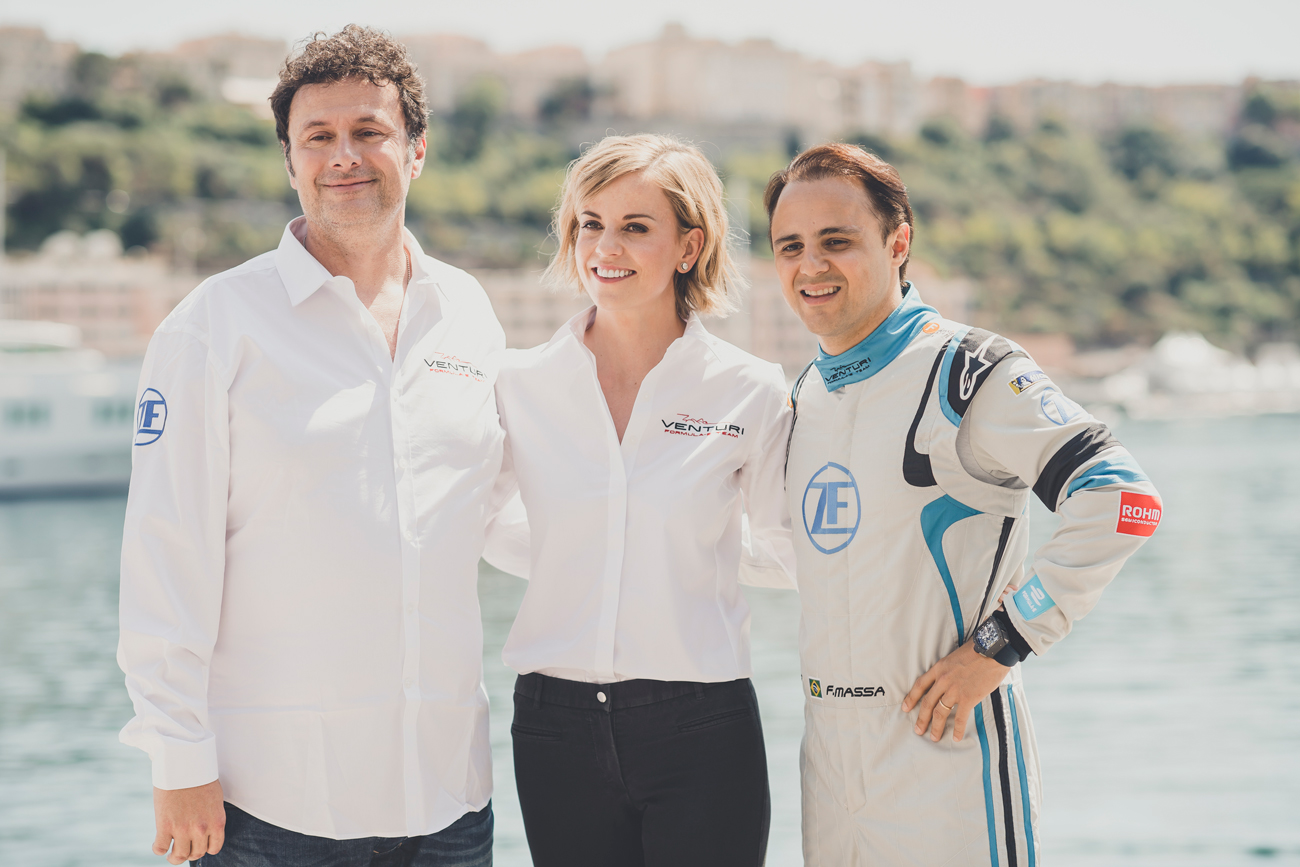
Do you think women are being taken more seriously in the motorsports arena?
I mean, being taken more seriously yes, definitely, and I think it’s also to do with the generation change within motor sport. The management here [at Formula E] are younger, they are absolutely aware of what women are capable of and realise what they are an asset to the team and therefore the performance. I think there’s a general will in sport for it to be more diverse. I think it’s just one of those weird ideals that it’s a man thing, but why should automobility be associated with men? Ultimately, there’s no reason why, and I think people underestimate the interest that women do have. We have huge buying power in the automotive industry. Around 30% of car sales are to women, but they influence 80% of car sales, so that’s quite some power within the purchasing area and manufacturers have to take that into account.
Are you hoping to get more women on the race track or into the garages?
For us, it’s just as important to get more women in the paddock as it is the race track. The events are designed so the girls do six activities – one of them is driving, but the other five are not related to on-track activity, such as engineering, fitness, journalism and sustainability challenges. We go for a younger age group and do one event for eight to 12-year-olds and another for 12 to 18-year-olds. It’s about inspiring them to get into motorsport. And while not all of them want a career in motorsport, what we’ve found that the events at least inspire them to believe that motorsport isn’t just for boys.
